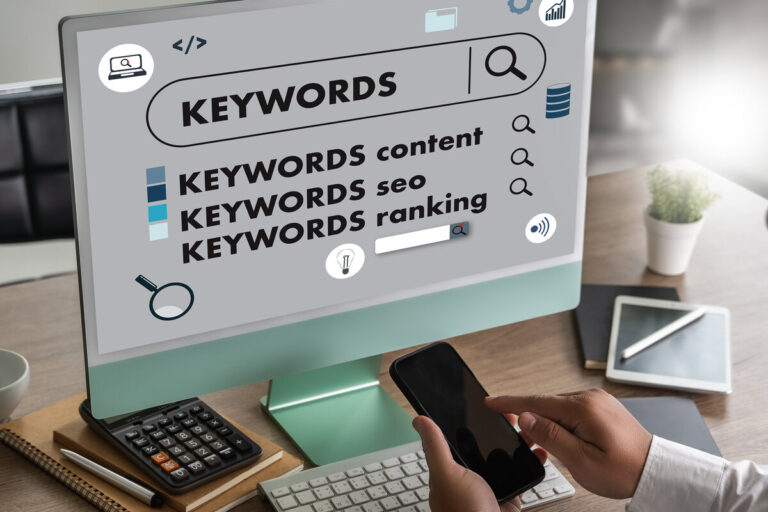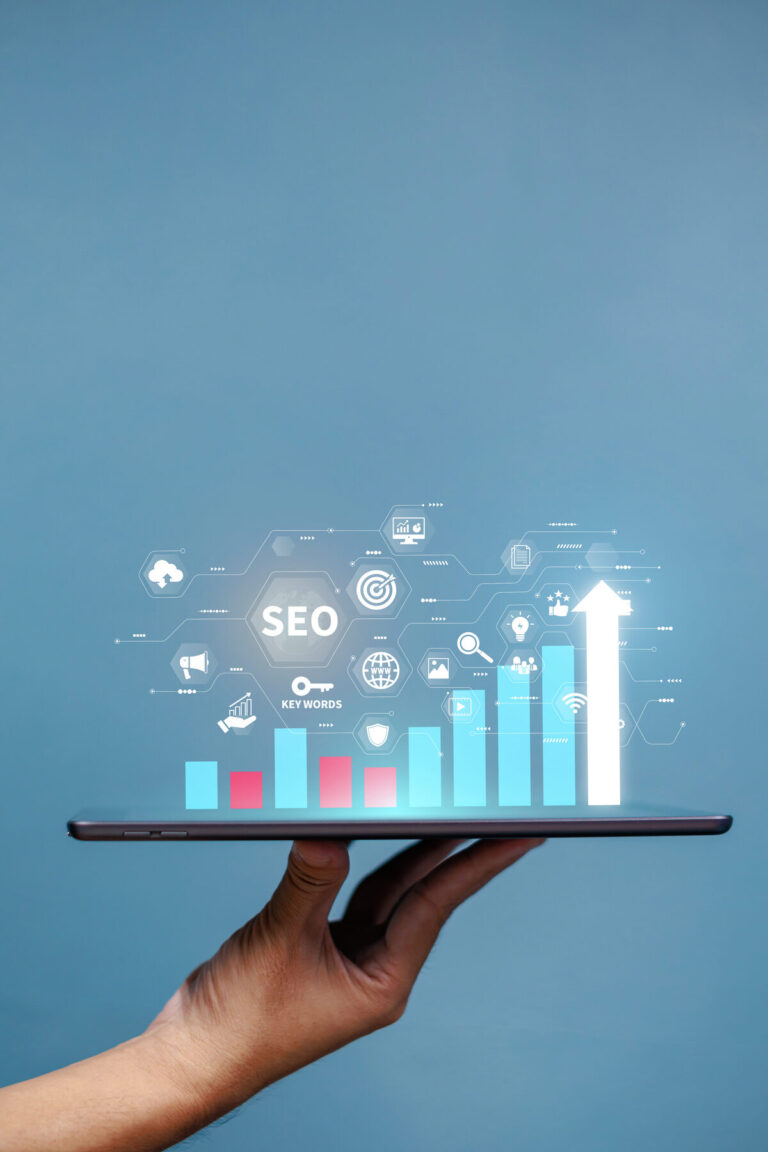
Introduction to AI Marketing
In the swiftly evolving landscape of modern marketing, the integration of Artificial Intelligence (AI), including tools like AI writing generators, has revolutionized how businesses approach customer engagement and strategies. Welcome to the dynamic world of AI marketing, where cutting-edge technology meets innovative marketing tactics to create a powerfully effective tool for today’s businesses.
Definition of AI Marketing
AI marketing refers to the utilization of artificial intelligence technology to automate and optimize marketing efforts. By leveraging data analysis, machine learning, and natural language processing, AI empowers marketers to make data-driven decisions, craft personalized customer experiences, and enhance overall efficiency. This transformative approach promises a level of precision and efficiency previously unattainable through human effort alone.
Historical Overview
The journey of AI in marketing began decades ago with the advent of rudimentary data analytics and automation tools. Initially, companies employed basic algorithms to sort through data and automate repetitive tasks. With advancements in machine learning and computational power, these technologies evolved to create more sophisticated applications like predictive analytics, chatbots, and personalized marketing. Today, AI-driven marketing is an indispensable aspect of forward-thinking business strategies, as it brings a level of intelligence and responsiveness that traditional methods simply cannot match.
The Role of AI in Modern Digital Marketing
In today’s highly competitive market, the role of AI marketing tools is paramount. Businesses leverage AI to gain deeper insights into customer behavior, predict trends, and deliver customized experiences across various channels. From personalized product recommendations and dynamic pricing strategies to automated customer service through chatbots, AI is redefining how brands interact with their audience. The ability to analyze massive datasets and derive actionable insights allows marketers to stay ahead of the curve, making intelligent decisions faster and more effectively. Integrating AI into digital marketing strategies enables organizations to systematically and strategically implement these changes, ensuring they remain competitive and efficient.
How Is AI Used In Marketing?
Personalization and Customer Journey Targeting
AI marketing tools are revolutionizing the way businesses personalize and target their customers. By analyzing vast amounts of data, AI can create highly personalized marketing messages tailored to the preferences and behaviors of individual users. For example, AI algorithms can track and analyze a user’s browsing history, purchase patterns, and engagement metrics to deliver customized content that resonates with them, enhancing the overall customer experience and boosting conversion rates.
AI marketing examples abound in the realm of personalization. Take Netflix, for example, which uses AI algorithms to recommend shows and movies based on your viewing history. This kind of personalized experience keeps customers engaged and coming back for more, directly impacting customer retention and satisfaction.
Predictive Analytics
Another powerful application of AI in marketing is predictive analytics. Predictive analytics uses historical data, machine learning algorithms, and statistical models to predict future outcomes. For marketers, this can translate into powerful insights about customer behavior and purchase patterns. Businesses can use these insights to make informed decisions about product launches, marketing strategies, and inventory management.
For example, an e-commerce company can use predictive analytics to determine which products are likely to be popular during a particular season. This helps optimize stock levels, plan marketing campaigns, and even set price points.
Chatbots and Conversational AI
Chatbots and Conversational AI are becoming essential components of modern marketing. They provide real-time interactions with customers, answering their queries and assisting them in making purchase decisions. With AI-driven chatbots, businesses can offer 24/7 customer support, ensuring that customer needs are met immediately, which can lead to increased customer satisfaction and loyalty. Additionally, chatbots play a crucial role in personalizing the customer journey, particularly during the content consumption phase.
Moreover, chatbots can be used to gather valuable customer feedback and data, which can be analyzed to further refine and personalize marketing efforts. Companies like Sephora have successfully employed chatbots to assist with product recommendations, ultimately enhancing the shopping experience.
Content Generation
AI writing tools like CoContent.AI are also transforming the realm of content generation. AI can automate the creation of blog posts, product descriptions, and even social media updates. By analyzing trends and user engagement data, AI can produce content that is not only relevant and engaging but also optimized for search engines, driving more organic traffic to your site.
Businesses can save time and resources with AI content creation, allowing their marketing teams to focus on strategic tasks such as brainstorming and campaign planning. Additionally, AI tools can continuously refine and improve content based on real-time performance data, ensuring that marketing messages remain effective and engaging.
Ad Optimization
AI marketing tools are invaluable for ad optimization. Integrating Google Ads with AI technologies can enhance the effectiveness of ad placements, personalize content, and provide strategic recommendations to maximize ROI and engagement. AI algorithms can analyze the performance of advertising campaigns in real-time, identifying what works and what doesn’t. This real-time analysis allows marketers to adjust their strategies on the fly, ensuring that advertising budgets are utilized most effectively.
For example, AI can identify the most effective keywords, ad placements, and target demographics for a particular campaign, optimizing each aspect to maximize return on investment. By leveraging AI for ad optimization, businesses can achieve better campaign performance and ultimately drive higher revenues.
Operational Efficiency
How Does AI Marketing Make Money?
The integration of AI marketing tools has completely upended traditional marketing paradigms, creating new revenue streams and improving profitability in ways that were previously unimaginable. Let’s dive into the various mechanisms through which AI marketing generates revenue.
Revenue through Enhanced Customer Engagement
One of the primary ways AI marketing drives revenue is through enhanced customer engagement. AI systems can also generate social media posts, helping marketers create engaging content and personalized marketing experiences across multiple platforms. AI systems can analyze huge amounts of customer data to personalize every interaction. From tailor-made promotions to personalized email campaigns, AI ensures that each customer feels valued and understood. This level of personalized attention can significantly boost customer retention and lifetime value.
Cost Reduction via Content Automation
AI marketing not only increases revenue but also reduces operational costs, primarily through the automation of marketing tasks. Costs associated with content creation, distribution, and ad management can be significantly lowered using AI. Automated content generation tools enable marketers to produce large volumes of high-quality content without the need for extensive human resources. Additionally, AI-driven ad optimization tools can autonomously adjust bidding strategies, allocate budgets effectively, and ensure better ROI on ad spend.
By lowering these costs, businesses can allocate more resources to growth initiatives, further increasing profitability.
Improved Conversion Rates
AI marketing tools excel at optimizing conversion rates. Through predictive analytics, AI can forecast which leads are most likely to convert and suggest the best times and methods for outreach. Businesses can then focus their efforts on high-probability leads, thereby improving their conversion rates and generating higher revenue. Furthermore, AI can continuously refine these strategies by learning from past interactions, ensuring ongoing optimization.
Case Studies and Real-World Examples
To illustrate these points, let’s look at some real-world examples. Companies like Netflix and Amazon use AI to recommend products and content based on user behavior, leading to increased sales and customer satisfaction. Another excellent example is Salesforce’s Einstein AI, which has helped businesses refine their customer relationship management (CRM) processes, resulting in higher customer retention and revenue growth.
Conclusion
In summary, AI marketing is a powerful tool that can drive revenue through enhanced customer engagement, cost reduction, and improved conversion rates. By leveraging AI marketing tools, companies large and small can gain a competitive edge in the ever-evolving digital landscape.
What Is The Best AI for Marketing?
Top AI Marketing Platforms and Tools
Choosing the right digital marketing tools can be daunting, given the sheer number of options available. Platforms like CoContent.AI, HubSpot, and Salesforce Einstein offer comprehensive features, while specialized tools like Acquisio and Conversica excel in specific areas. These platforms are designed to enhance various aspects of marketing, from personalized content generation to customer segmentation and predictive analytics. CoContent.AI stands out for its versatility and user-friendliness, making it an excellent choice for businesses of all sizes.
CoContent.AI
CoContent.AI is a leading player in the AI marketing space. Known for its intuitive interface and powerful algorithms, CoContent.AI helps businesses streamline content creation, personalize customer interactions, and optimize ad campaigns. User reviews highlight its ability to integrate seamlessly with existing marketing platforms, making it a go-to tool for marketers seeking efficiency and innovation.
HubSpot
HubSpot’s AI capabilities focus on enhancing customer relationship management (CRM). With features like predictive lead scoring and automated customer service interactions, HubSpot simplifies many aspects of digital marketing. Its AI-powered analytics provide actionable insights, helping businesses fine-tune their strategies for maximum impact.
Feature Comparison of Leading AI Tools
When comparing AI marketing tools, it’s essential to evaluate the specific features they offer. For instance, CoContent.AI excels in content generation and customization. In contrast, HubSpot and Salesforce Einstein are renowned for their CRM and customer engagement capabilities. Acquisio focuses on ad optimization, providing real-time bidding and budget management features. Conversica stands out for its AI-driven lead engagement, using natural language processing to interact with potential customers.
Criteria for Choosing the Right AI for Your Business
Selecting the best AI marketing tool depends on several factors, including your business’s size, goals, and budget. Key criteria to consider include:
- Ease of Integration: Ensure the AI tool can seamlessly integrate with your existing platforms and tools.
- Scalability: Choose a solution that can grow with your business, accommodating increasing data volumes and customer interactions.
- Cost: Evaluate the cost-effectiveness of the tool, considering both initial investment and ongoing subscription fees.
- Support and Training: Opt for a platform that offers robust customer support and training resources to help your team get up to speed quickly.
- User Reviews: Look for real-world feedback from other businesses in your industry to gauge the tool’s performance and reliability.
Reviews and User Experiences
User experiences vary, but common themes often reflect the tool’s ease of use, impact on marketing efficiency, and return on investment. CoContent.AI users frequently praise its intuitive design and the quality of its AI-generated content. HubSpot users appreciate its robust CRM capabilities and comprehensive analytics. Meanwhile, Salesforce Einstein receives accolades for its predictive analytics and scalability, especially among larger enterprises.
Ultimately, the best AI for marketing will depend on your specific needs and objectives. By carefully evaluating your options and considering user feedback, you can find a solution that empowers your marketing strategies, drives engagement, and increases ROI.
Does AI Marketing Actually Work?
Marketing with Artificial Intelligence (AI) has moved from the realm of science fiction to a tangible reality that is revolutionizing industries. However, one pressing question remains for many marketers and business owners: Does AI marketing actually work? Delving into success stories, the challenges faced, future trends, and expert opinions can provide a comprehensive answer.
Success Stories and Metrics
There are numerous AI marketing examples that illustrate its efficacy. Optimizing web pages through AI can significantly enhance user experience and content quality. Companies like Netflix and Amazon use AI algorithms to recommend products to users, creating a highly personalized experience that boosts sales and customer satisfaction. This strategy has worked so effectively that personalized recommendations drive a significant portion of their revenue. Similarly, platforms like CoContent.AI help businesses streamline their Content Marketing efforts. With powerful AI marketing tools, brands can generate, curate, and optimize content to engage their audience effectively, thus improving conversion rates.
Real-World Metrics
Metrics and data support these success stories. Businesses leveraging AI report increased customer engagement, higher conversion rates, and improved ROI. According to a study by Gartner, companies that successfully deploy AI in their marketing strategies can achieve up to a 30% increase in efficiency and a 20% increase in revenue. These numbers make a compelling case for the practical benefits of incorporating AI in marketing initiatives.
Challenges and Limitations
Despite its many advantages, AI marketing is not without its challenges. One of the primary obstacles is the initial investment in technology and training. Small businesses may find it challenging to allocate a budget for advanced AI solutions. Additionally, there are technical limitations, such as data quality and algorithm biases, that can affect outcomes.
Another significant issue is the human factor. AI tools can optimize processes and provide insights, but they still require human oversight and interpretation. Over-reliance on AI without critical human oversight can lead to misinterpretations and missed opportunities.
Mitigating Challenges
Addressing these challenges involves strategic planning and a balanced approach. Investing in quality data management systems and ongoing training programs can mitigate technical issues. Combining AI capabilities with human expertise ensures a more nuanced and effective marketing strategy.
Future Trends
The future of AI marketing looks promising, with continuous advancements and new applications on the horizon. Emerging trends like emotion AI, which aims to understand and respond to human emotions, and predictive analytics for forecasting consumer behavior are set to further enhance marketing strategies. These innovations promise to make AI tools even more effective and indispensable for modern marketers.
The Role of CoContent.AI
Platforms like CoContent.AI are at the forefront of these advancements. They are developing new features and tools that leverage the latest AI technologies to assist marketers in crafting compelling, data-driven campaigns. This makes it easier for businesses to stay ahead of the curve and tap into the full potential of AI in their marketing efforts.
Industry Expert Opinions
To round off the discussion, industry experts emphasize the importance of integrating AI judiciously. Scott Brinker, a leading marketing technology expert, notes that while AI can significantly enhance marketing, it should be seen as an enabler rather than a replacement. Combining the analytical strength of AI with the creative insights of human marketers will lead to the best outcomes.
Similarly, AI marketing thought leader Katie King stresses the importance of ethical considerations and transparency. As AI becomes more ingrained in marketing strategies, maintaining consumer trust through ethical practices and transparent operations will be crucial.
In conclusion, AI marketing does indeed work, demonstrating immense potential through concrete examples and data. While challenges exist, they are far outweighed by the benefits and opportunities that AI brings. By staying informed about future trends and listening to industry experts, businesses can harness the power of AI to achieve unprecedented marketing success.
Getting Started with AI Marketing
Embarking on your AI marketing journey can seem daunting at first, but with the right tools and knowledge, it’s a rewarding path toward optimizing your marketing efforts. Whether you’re a small business owner, a digital marketer, or a Chief Marketing Officer (CMO), understanding the initial steps will set you up for success in leveraging AI technologies.
Sign-Up and Initial Setup
The first step in integrating AI into your marketing strategy starts with selecting and signing up for an AI marketing platform. Platforms like CoContent.AI offer streamlined sign-in processes designed to get you started quickly. Most platforms will guide you through creating an account, setting up your initial preferences, and connecting your existing marketing tools, such as your CRM, social media accounts, and email marketing software.
During the setup process, take advantage of tutorials and customer support offered by platforms like CoContent.AI. They often provide step-by-step guidance to help you understand the dashboard and functionalities. It’s essential to properly configure data sources to ensure that the AI can analyze and optimize your marketing campaigns effectively.
Beginner Courses and Resources
Once you’re set up, educating yourself and your team on how to utilize AI tools can significantly impact your outcomes. Numerous AI marketing courses are available online, ranging from beginner to advanced levels. These courses cover crucial topics such as AI fundamentals, data analytics, machine learning, and practical applications in marketing.
Platforms like CoContent.AI often provide their own set of resources, including video tutorials, webinars, white papers, and community forums. Engaging with such content will not only enhance your understanding but also help you stay updated on the latest trends and best practices in AI marketing.
Basic Marketing Strategies for Implementation
Implementing AI in your marketing strategy doesn’t have to be complicated. Start with basic strategies such as using AI for customer segmentation and targeting. AI can analyze vast amounts of data to identify customer patterns and preferences, enabling you to create more personalized marketing campaigns.
Another essential strategy is leveraging predictive analytics. AI can predict future customer behavior based on historical data, which can be invaluable for campaign planning, product launches, and inventory management. Incorporating chatbots is another straightforward implementation. Chatbots powered by AI can handle customer inquiries round-the-clock, improving customer engagement and satisfaction.
Free Tools and Trials
If you’re hesitant to make a financial commitment before seeing tangible results, several AI marketing tools offer free trials or freemium versions. This approach allows you to test out the software’s features and understand its potential impact on your marketing efforts before opting for a full subscription.
Tools like CoContent.AI offer trial periods, which provide a risk-free opportunity to explore their capabilities. During this trial phase, experiment with various features such as analytics, content generation, and automation to see which aspects offer the most value for your business.
Remember, the key to successful AI integration lies in starting small and scaling progressively. Regularly evaluate the performance and ROI of AI tools and strategies and make iterative improvements based on data-driven insights.
Conclusion and Future of AI Marketing
The future of AI marketing is incredibly promising, filled with opportunities for businesses to revolutionize their marketing strategies. The adoption of AI marketing tools has already shown significant benefits and will continue to shape the landscape of digital marketing.
Summary of Key Takeaways
Throughout this article, we’ve covered a myriad of ways AI is transforming the marketing industry. From personalization and predictive analytics to chatbots and content generation, AI enables marketers to connect with customers more effectively and efficiently. It’s clear that AI not only reduces costs but also drives higher engagement and conversion rates.
Predicted Developments in AI Marketing
Moving forward, we can expect to see even more sophisticated AI applications in marketing. Technologies like machine learning and natural language processing will advance, offering more refined targeting and predictive capabilities. Another exciting development is the integration of AI with Augmented Reality (AR) and Virtual Reality (VR), creating immersive and interactive customer experiences.
Actionable Steps for Businesses
For businesses eager to harness the power of AI in their marketing efforts, the first step is to assess your current marketing strategies and identify areas where AI could bring the most value. Invest in the right AI marketing tools and ensure your team is trained to make the most of these technologies. Start small with pilot projects to gauge the effectiveness before scaling up.
Final Thoughts
AI marketing is not just a trend; it’s a game-changer for businesses of all sizes. By staying informed about the latest advancements and adopting AI marketing tools, companies can stay ahead of the curve and drive more significant results than ever before.
Transform your marketing strategy with cutting-edge AI solutions from CoContent.ai. Our platform offers innovative tools for content creation, keyword research, and overall marketing enhancement. Generate high-quality, brand-focused content effortlessly and boost your marketing efforts with a single click. Try CoContent.AI for free!






